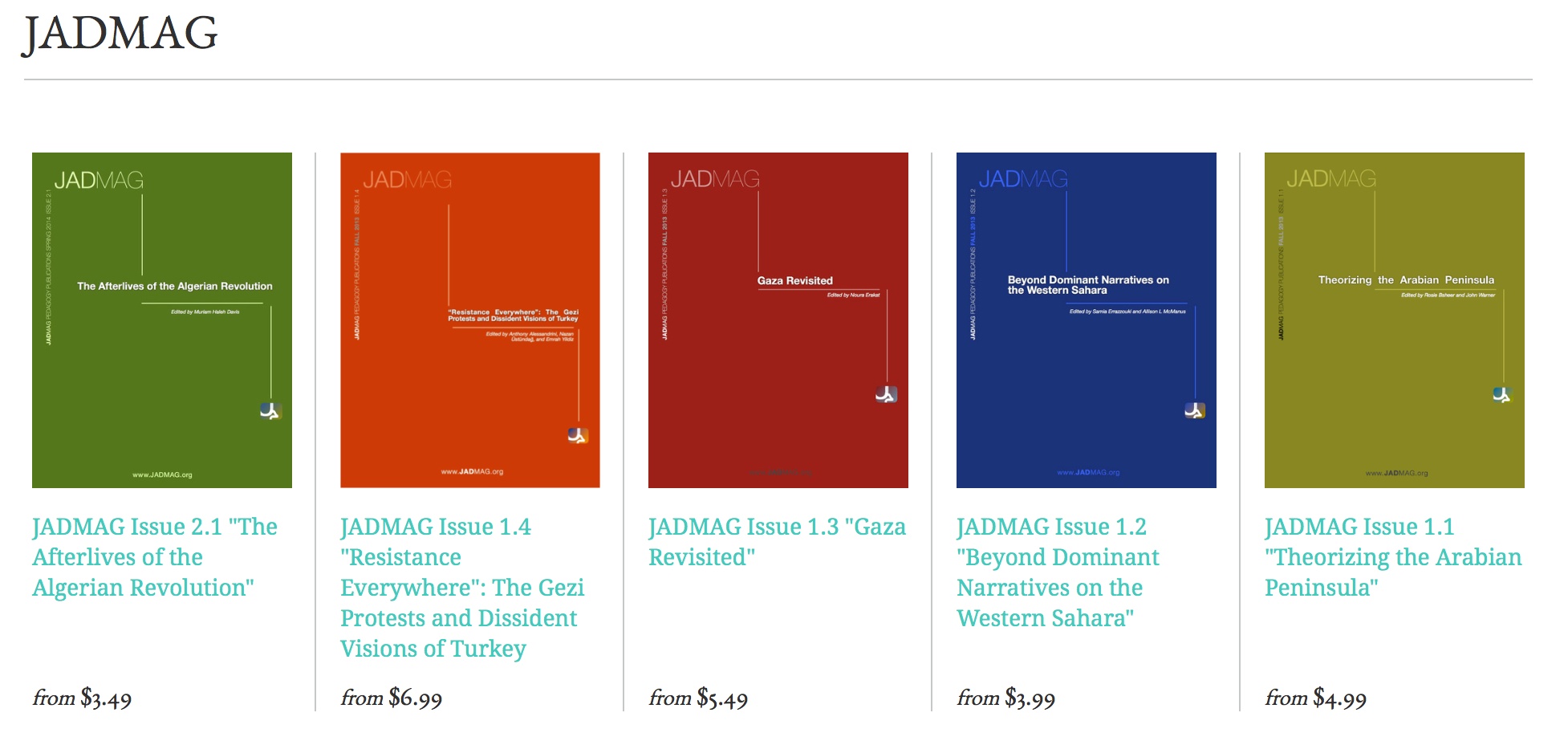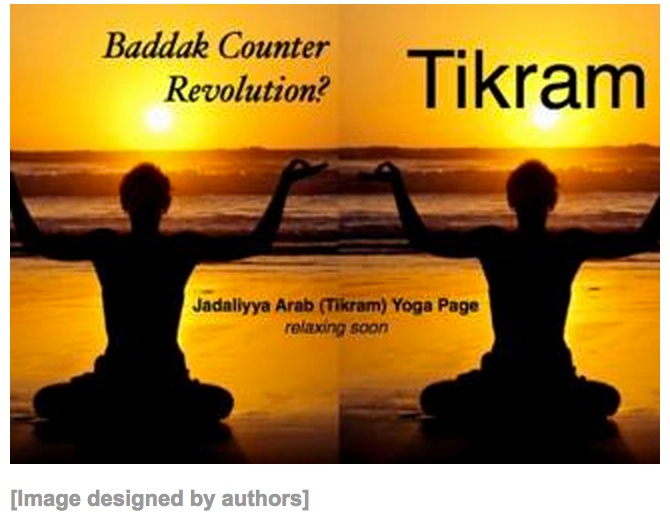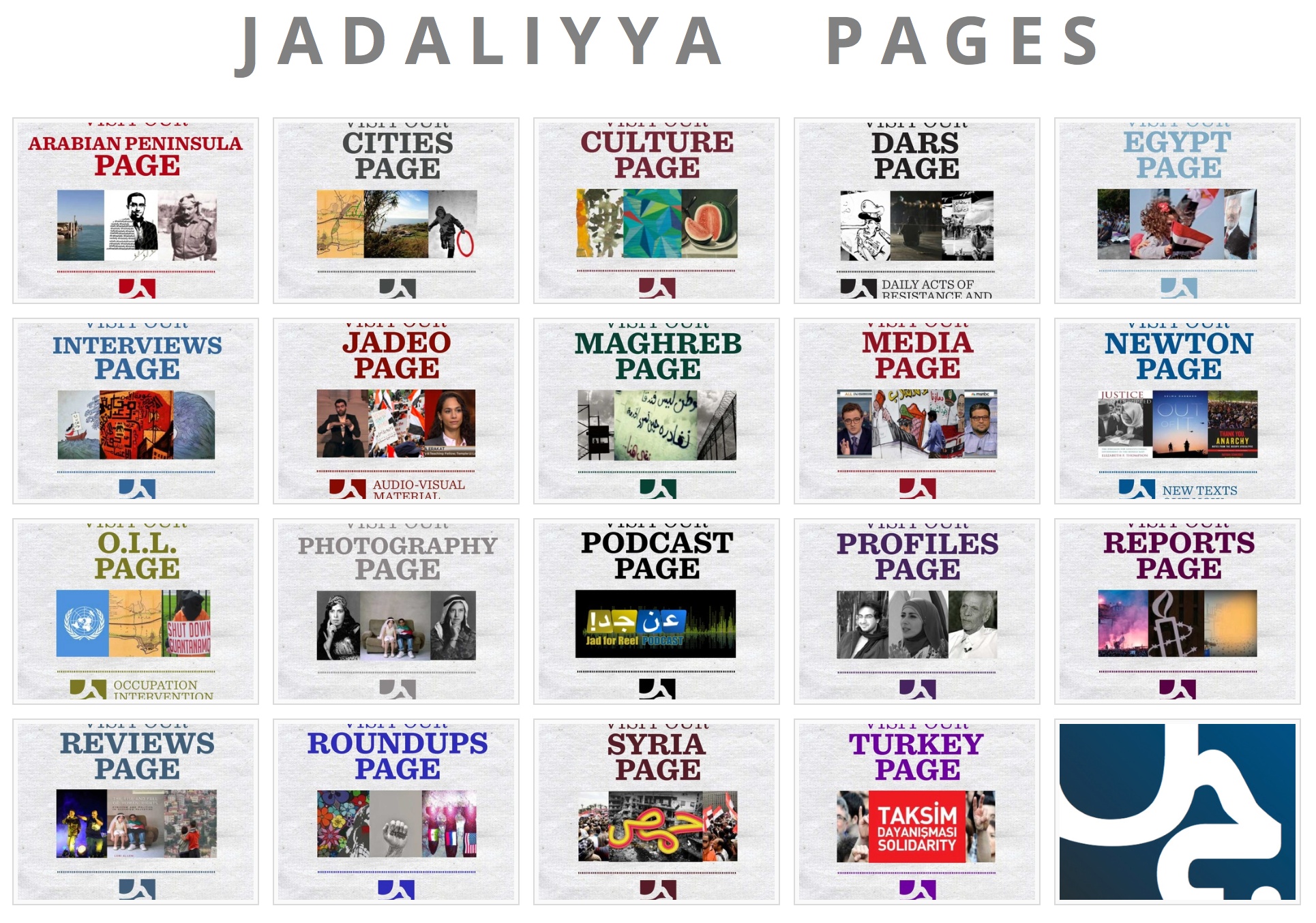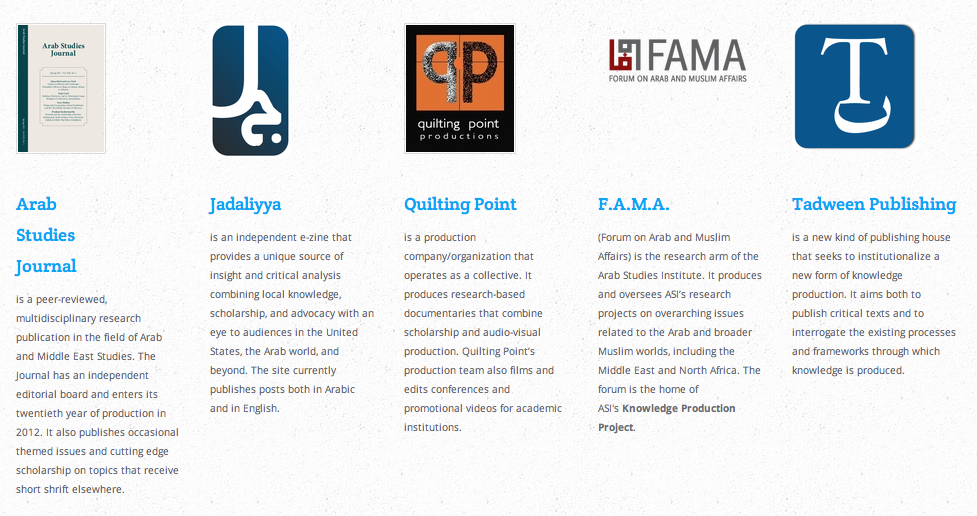Jadaliyya turns four this September (totally behind on the announcement). As we promised this time last year, we were going to have a busy year, but we were somewhat wrong. It was actually pretty insane.
Internally, we were consumed by building new pages and teams, finalizing an institutionalization process that is now firmly in place, and expanding our networks considerably in the Middle East and beyond. We are happy to report that not only has our readership expanded dramatically, mostly in the region—the principal object of our analysis and reporting—but it has also become one of our main avenues for sharing Jadaliyya content. Our readers and our team are literally our biggest assets. Equally important in terms of impact, beyond growth and numbers, is the near-unique achievement of seeing Jadaliyya materials adorn an inumerable number of classroom syllabi, virtually on any topic. Very little is more satisfying for a publication like ours.
[Click here for the Arabic version]
The truth is, we are just getting warmed up.
Perhaps even more consequential in terms of the urgency of our work is the escalation of violence in the region, with further twists and turns in the context of ongoing or rekindled uprisings, and, markedly, the war on Gaza that galvanized the world’s attention. More recently, it was ISIS mania, or hysteria, that has received more than its worth of media attention. Among other “spikes” in both violence, intrigue, and incalculable media interpretations that we sift through to produce some sense, we, and we imagine similar publications, had more than enough on our plate with which to contend. Such busy years may be "good" for publications, but we need to be continuously reminded of the human toll that has been incurred. If we, or publications like ours, do not rise up to contribute to some form of progress by, among other things, confronting power and/or debunking narratives that legitimize various forms of exploitation, we probably should fold.
But there is also another dimension to our work that merits attention, or more attention. Some of the critiques of our work that focus exclusively on our handling our current events end up bypassing one of the more important raison d`etre of this publication.
Despite the increasingly urgent current events that require our critical attention, we continue to publish exciting work about various topics and time periods across our more than eighteen county/thems pages, which distinguishes Jadaliyya among its peers. Our NEWTON and interviews sections, reflective and historical pieces, and the robust cultural and literary content we publish in English, Arabic, and other languages makes Jadaliyya relevant irrespective of changes in the current political realities. In fact, as per above, this has always been the intent of the co-founders of this publication. But, alas, or not (?), the Arab uprisings whisked so much of our immediate energy away. We will therefore renew our efforts to return to a more balanced coverage that affords even more space for matters that do not involve the current moment.
In the past, we went to great lengths to discuss Jadaliyya’s history and trajectory. Somehow, this is no longer necessary or desirable. See our third-year milestone announcement below,** which we can safely say was a transformational moment. Henceforth, we have been harnessing, nurturing, and protecting our trajectory, as discussed below. It is a mixed blessing because the magic of the early days must go away, and must be survived by any successful project for it to soar beyond that initial euphoria. We have done this before with the Arab Studies Journal which launched in 1992. Thrilled to do it again.
Jad Turns One: http://www.jadaliyya.com/pages/index/2701/jadaliyya-turns-one
Jad Turns Two: http://www.jadaliyya.com/pages/index/7473/jadaliyya-celebrates-its-two-year-anniversary
** Jad Turns Three: http://www.jadaliyya.com/pages/index/14374/jadaliyya-turns-three_a-journeys-recap
In fact, the entire passing of the fourth year constituted a benchmark that elucidated mixed emotions: the feeling of being established, stable, and growing is both good news and bad news. It is good news because this is the goal of any comparable organization that seeks to remain relevant and effective. It is bad news because with the passing of the most basic building stages comes the loss of some of the magic of “struggle,” the feeling of starting something new, however non-dramatic all this is to outsiders.
But herein lies the difference between one-hit-wonders and long-term projects: surviving the euphoria and sheer excitement of newness, both of which apply to any new venture, including personal ones. We certainly hope to keep going with evermore vigor and originality. Not only do we, at the Arab Studies Institute (ASI), have twenty-two years of experience with building organizations that both survive and thrive, but also the very institutional structure, networks, and solidarity behind Jadaliyya’s early journey have become more dynamic and supple. We are here for the long haul, despite empire, dictators, drones, and douchebags. (اجل. كتبناها)
Where To?
In the past year, we promised we will develop our content and pages, institutionalize our relations with our sister organizations at ASI (Arab Studies Journal, Tadween, Quilting Point, FAMA), venture further into producing pedagogical publications, and work with our colleagues at ASI to develop the mammoth Knowledge Production Project. We are pleased to announce that we accomplished all these goals and more. A cursory review of the material we have published/produced or the websites in which they live tells a more complete story. We have published several JadMag issues, ranging from Gezi to Gaza, and from Theorizing the Arabian Peninsula to addressing the Algerian revolution.
As you can see below, we tried as much as possible to price our publications at near-cost. One way our readers can support Jadaliyya and its sister organization Tadween Publishing is by picking up a copy. Better yet, if you are an educator, we have been issuing serious discounts for entire classes. Pedagogically, these publications have proved exremely student-friendly and teacher-friendly.
We have also ventured into marginalized issues, including the Western Sahara. All JadMag issues come with both a set of detailed and somewhat exhaustive scholarly resources, as well as a list of important social media links. Educators get their copies for free if they sign up to our Tadween Educators Network, and receive a “Teaching Guide" to accompany each JadMag. To take a peek at the guide, click here. All the above can be found on http://www.JadMag.org
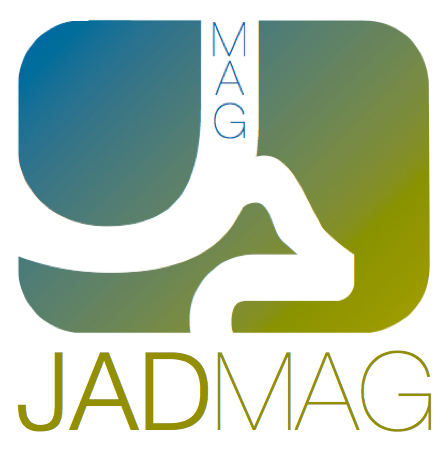
[The Pedagogical Publication, JadMag. Click to go to www.JadMag.org]
We have also managed to publish three books since last year, the highlight of which is Sunaina Maira’s captivating Jil Oslo: Palestinian Hip Hop, Youth Culture, and the Youth Movement. Jadaliyya has also been the source of last year`s valuable manuscript, Aborted State: The UN Initiative and New Palestinian Junctures. This week, we are also launching a new book of a different kind, Creative Refuge. For more information on these and other publications, visit http://www.TadweenPublishing.com
Beyond publications, we are dedicating this coming year to expanding our hands-on Pedagogy Initiative. In cooperation with the Middle East Studies Program at George Mason University, the Center For Contemporary Arab Studies at Georgetown University, the Asfari Institute For Civil Society And Citizenship at The American University in Beirut, and Jadaliyya, we are launching the Middle East Studies Pedagogy Initiative (MESPI) to provide critical, user-friendly, and informative pedagogical material and instruction to educators in the field, and beyond. MESPI will provide
• Pedagogical Resources (including publications and Essential Readings)
• Teaching Modules For Survey Courses And Beyond
• Course Syllabi Tool and Library
• Free Exam Copies Of Publications For Educators
• K-12 Teaching Guide And Visual Resources
• Films In The Classroom
• Pedagogical and Media Roundups on Selected/Salient Topics
Stay tuned!
As for Jadaliyya pages, we have launched two pages in the past year, including our very popular Cities Page and Critical Currents in Islam Page, and soon to be revamped Vox Populi Page. We have been criticized, sometimes rightly, for having too many pages. But not all observers are aware that this is an organic process that develops as a function of an existing team that wishes to handle their own subimissions. Each launched page involves its own relatively autonomous team, which allows it to grow unfettered, with minimal interference from anything resembling a centralized censorship. Clearly, however, new teams/leaders know what they are getting into when they join Jadaliyya. Our site URL is the best indication of what we publish, and do not publish.
This year, we have some additional sections and pages that will make a debut, but we will hold off on announcing them until we are quite ready. We are, however, slowing down in that regard.
Even Jadaliyya Co-Editors poked fun at the rate at which new pages were going up. Two of us published an announcement for a new Arab (TIKRAM) Yoga Page.
Perhaps far more than expansion, we are looking forward to a profound deepening phase, where, in plain language, we take what we have produced and make it better. As many have noticed, one avenue that we have pursued since last spring is actually to publish less. We have cut down our acceptance of submissions and overall publishing rate by almost thirty five percent. Given the dramatic increase in our archives, as this year rolls by, readers will see gradual improvements in the manner in which we present material as well as in the manner in which readers can search/find material. Other fundamental changes will be announced throughout with the intention of maintaining and improving overall quality, content, and accessibility.
In short, we will spend the coming year harnessing, protecting, and nurturing our existing state of growth and capacity while maintaining and increasing standards of excellence throughout. Surely we have made mistakes, and we keep an open ear to constructive feedback. Our intention is to learn from these mistakes and capitalize (if we may say so) on our successes. We hope you will join us as we continue our journey, and really really hope you are as excited and energized as we all are!
Collaboration with ASI
We will continue to deepen our collaboration with Jadaliyya’s four sister organizations at the Arab Studies Institute (ASI), including Arab Studies Journal (peer-reviewed research Journal intended for researchers); Quilting Point (research-based documentary production collective intended for general audiences); Tadween Publishing (a new kind of publishing house intended for educators and the general public); and FAMA (Forum on Arab and Muslim Affairs, the research arm of ASI, engaging primarily in research on Knowledge Production on the region). MESPI (Middle East Studies Pedagogy Initiative) is one such avenue. But we intend to develop more collaborative publishing projects with both Tadween and the Arab Studies Journal, and addition audio-visual material with our production collective, Quilting Point.
[Jadaliyya`s sister organizations at the Arab Studies Institute. Click HERE for more information]
During this academic year, we will be announcing the BETA version of ASI`s mammoth project on Knowledge Production on the Middle East (where Jadaliyya will play a role in dissemination and beyond). This eight-year project will allow for an unprecedented comprehensive and interactive search for both generic research pursposes and, more critically, for the purspose of scrutinizing knowledge production on the region as a politicized process/affair, related as much to power and financing as it is to the desire for the pursuit of knowledge. It aims at collecting and organizing knowledge produced on the Middle East, primarily in the English-speaking world, since 1979 for analysis. Practically, KPP involves the creation of seven databases that catalog all peer-reviewed articles on the region, all books, and a variety of other print, visual, and online sources of knowledge, including think-tank policy papers, dissertations, films, and websites, to be made available to the general public, ultimately, via open source avenues.
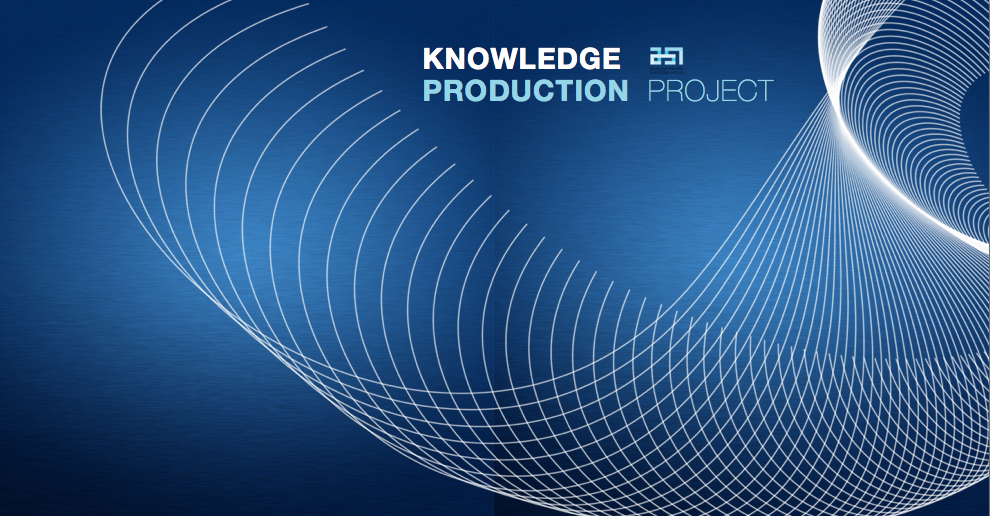
[ASI`s Knowledge Production Project involves Jadaliyya and its sister organizations at the Arab Studies Institute.
Click HERE for more information. We will announce this project shortly.]
We will leave you with some pictures from different Jad-related events, meetings, and gatherings, from Washginton DC to Beirut, featuring the single biggest asset that Jadaliyya possesses: it’s stellar team! We will also leave you a few links, including the recent feature tha the Chronicle of Higher Education did on Jadaliyya, the interview the Chronicle conducted with one of the Co-Founders for the said article and our Top 50 posts since 2010.
- Jadaliyya`s Top 50 of All Time
- The Chronicle of Higher Education Interviews Jadaliyya Co-Founder Bassam Haddad
- Jadaliyya Featured in The Chronicle of Higher Education
Oh, and one more thing. In a few weeks, Jadaliyya will participate in the collective launch of an Audio Journal, along with regional partners. This will be the first project of its kind. We can`t hold our breath and, soon, you will know what we mean.
Happy reading (and soon, happy listening).
Jadaliyya Co-Editors
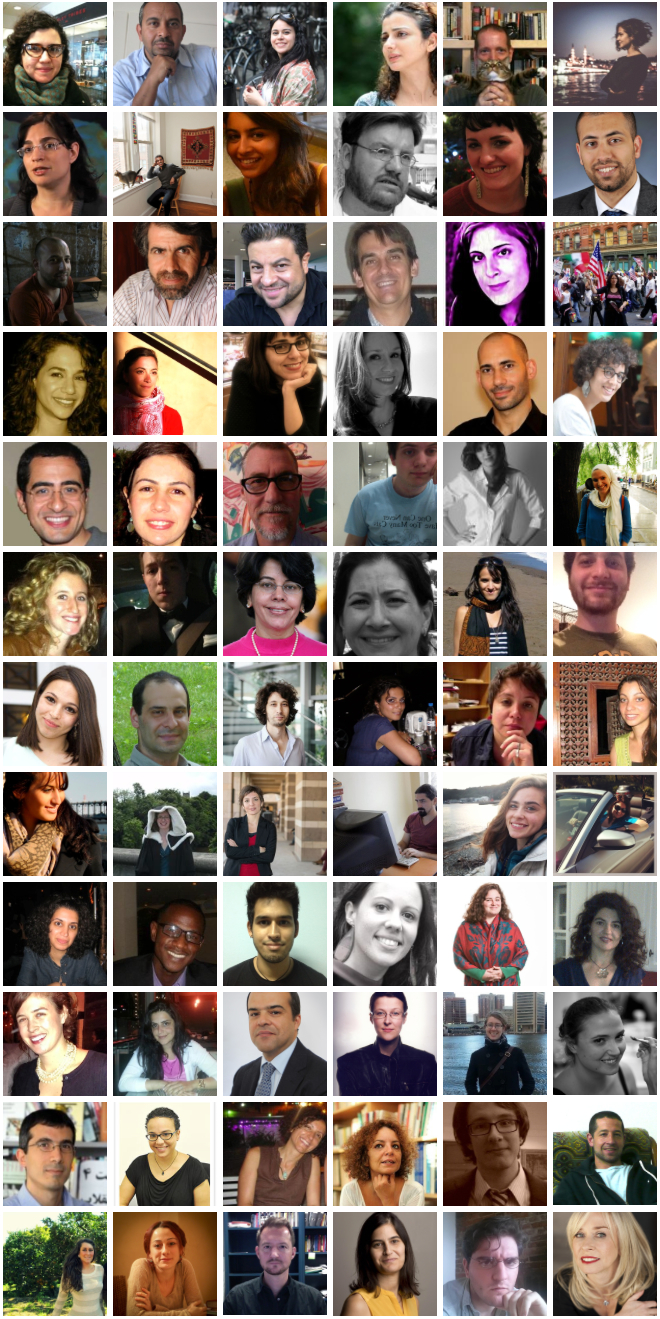
[The Jadaliyya Team]
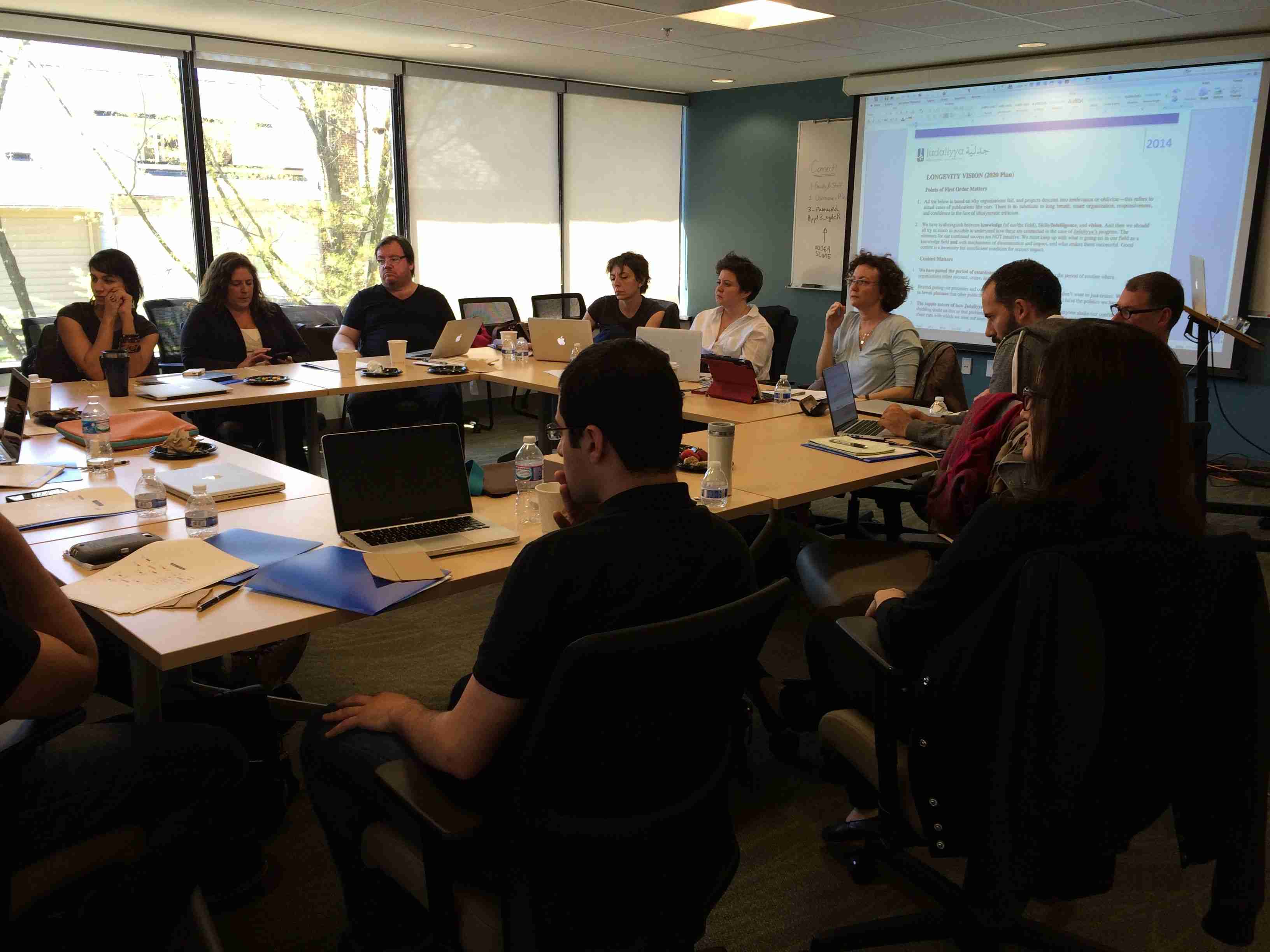
[Jadaliyya face-to-face co-editors` meeting, featuring each and every co-editor in the same place in April 2014.]
.jpg)
[Jadaliyya Co-Editor Ibtisam Azem leading the Arabic Section workshop]
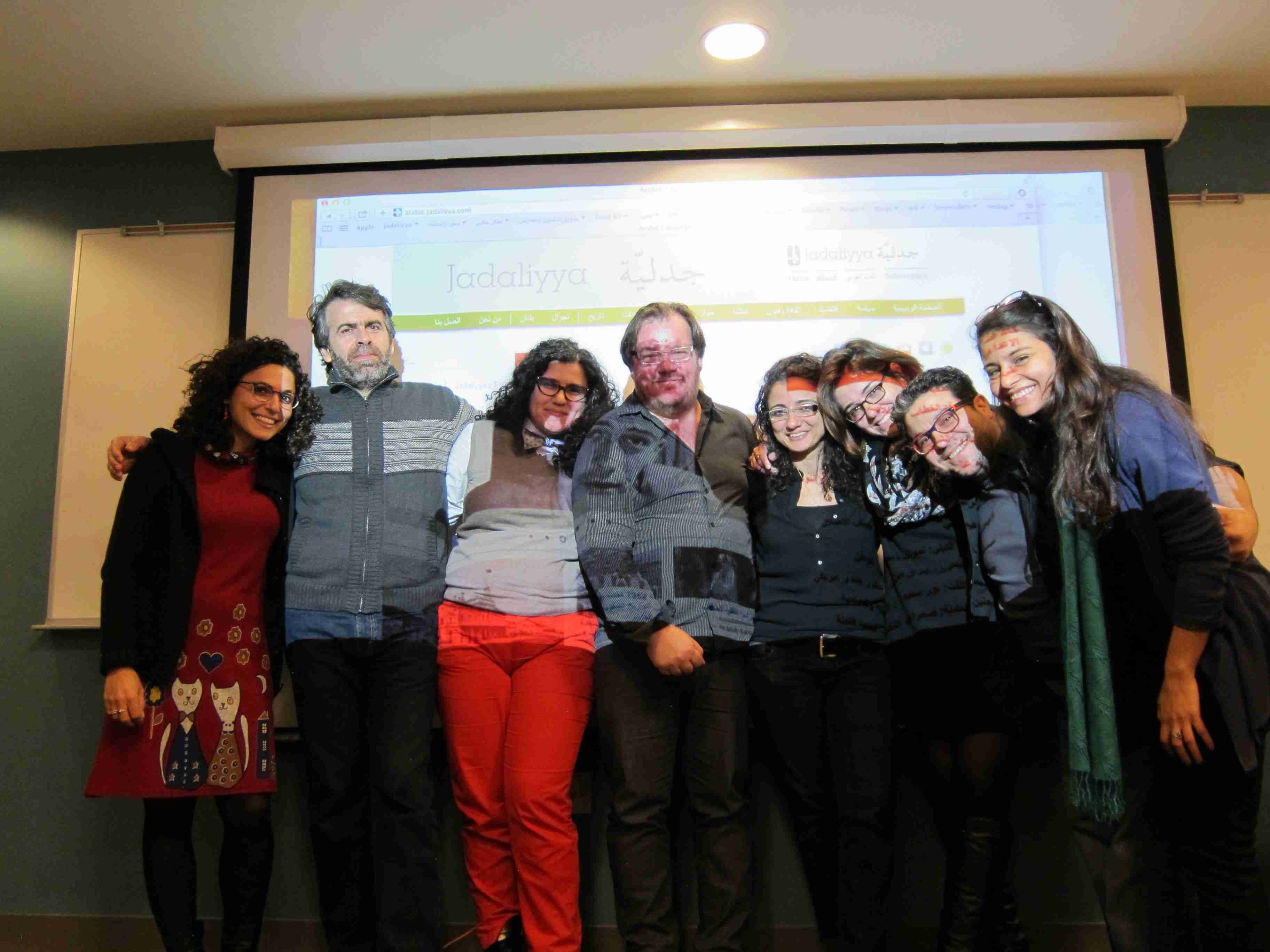
[Jadaliyya`s Arabic Section team during workshop]
.jpg)
[Jadaliyya roundtable event on Syria featuring Daniel Neep, Rochelle Davis, Yasser Munif,
Ibrahim Hamidi, Lisa Wedeen, Omar Dahi (on podium) and Osama Esber (not pictured).]
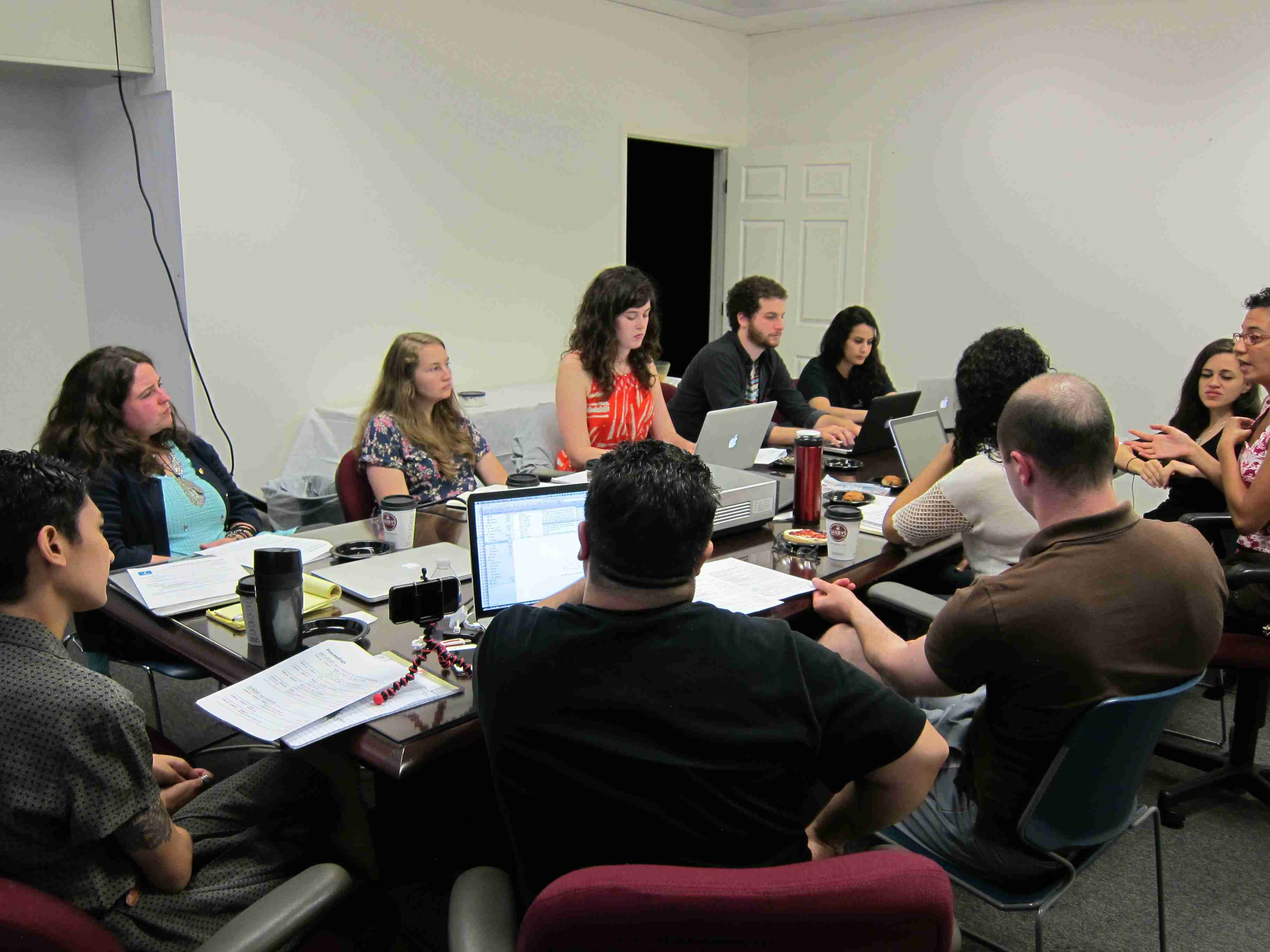
[Tadween Publishing team meeting]
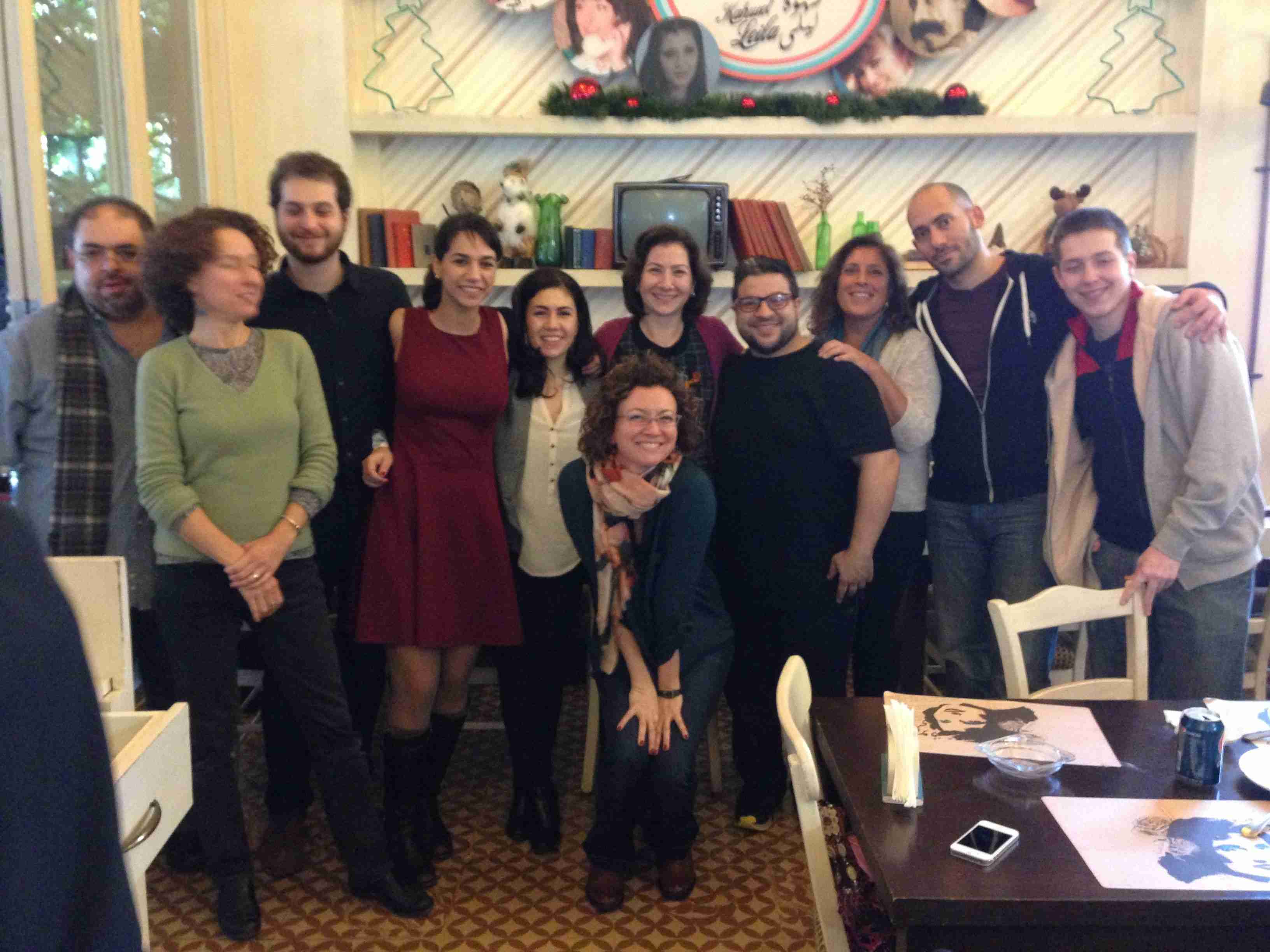
[Jadaliyya team members during a Beirut meet up, January 2014. Left to right: Elie Haddad, Michelle Woodward, Nader Atassi, Noura Erakat, Hiba Bou Akar, Mona Harb, Bassam Haddad, Lisa Hajjar, Ziad Abu-Rish, Michael Haddad, and (center) Nadya Sbaiti]
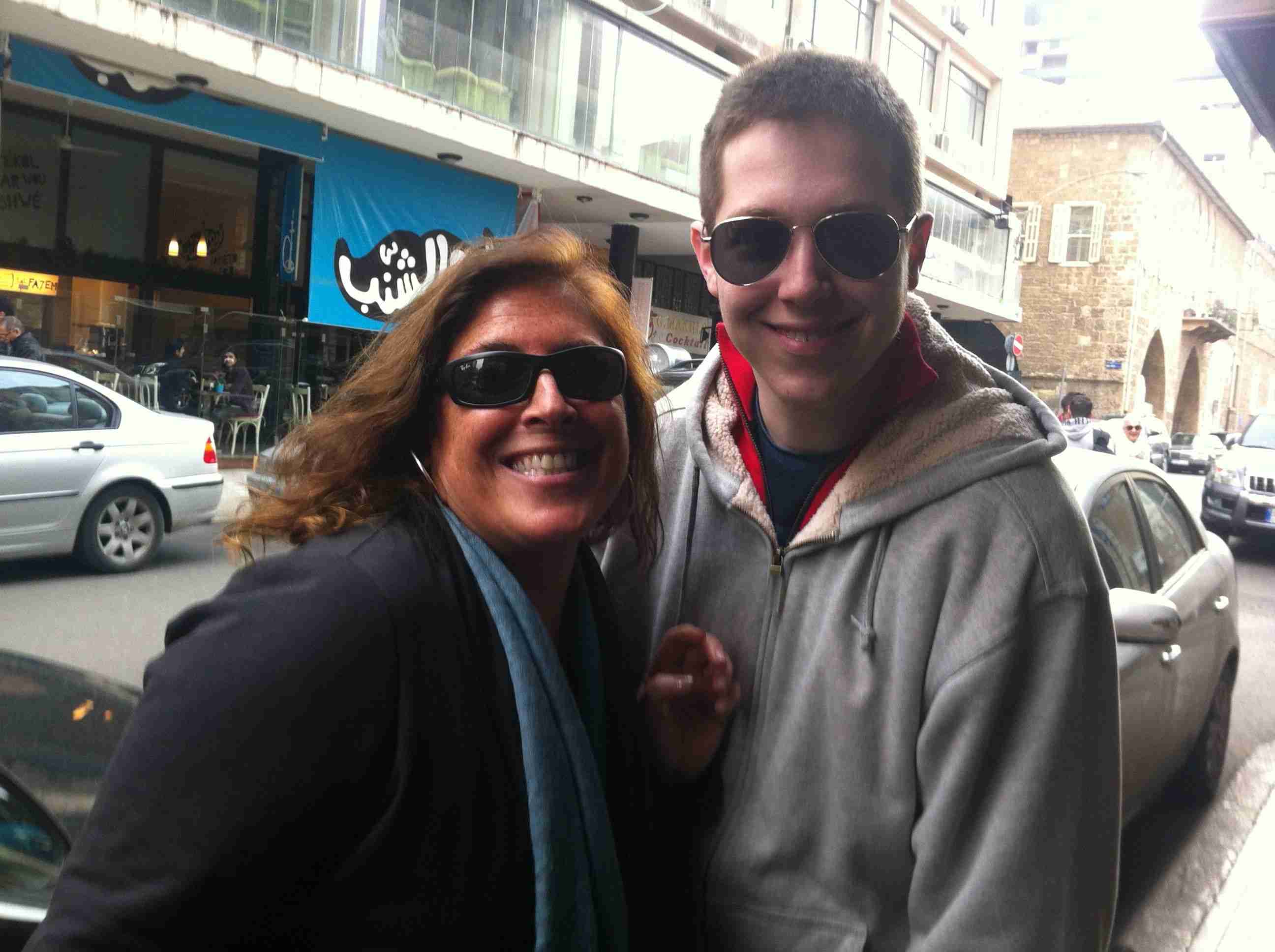
[Jadaliyya team members Lisa Hajjar and Michael Haddad take a quick pose before parting ways in Beirut.]
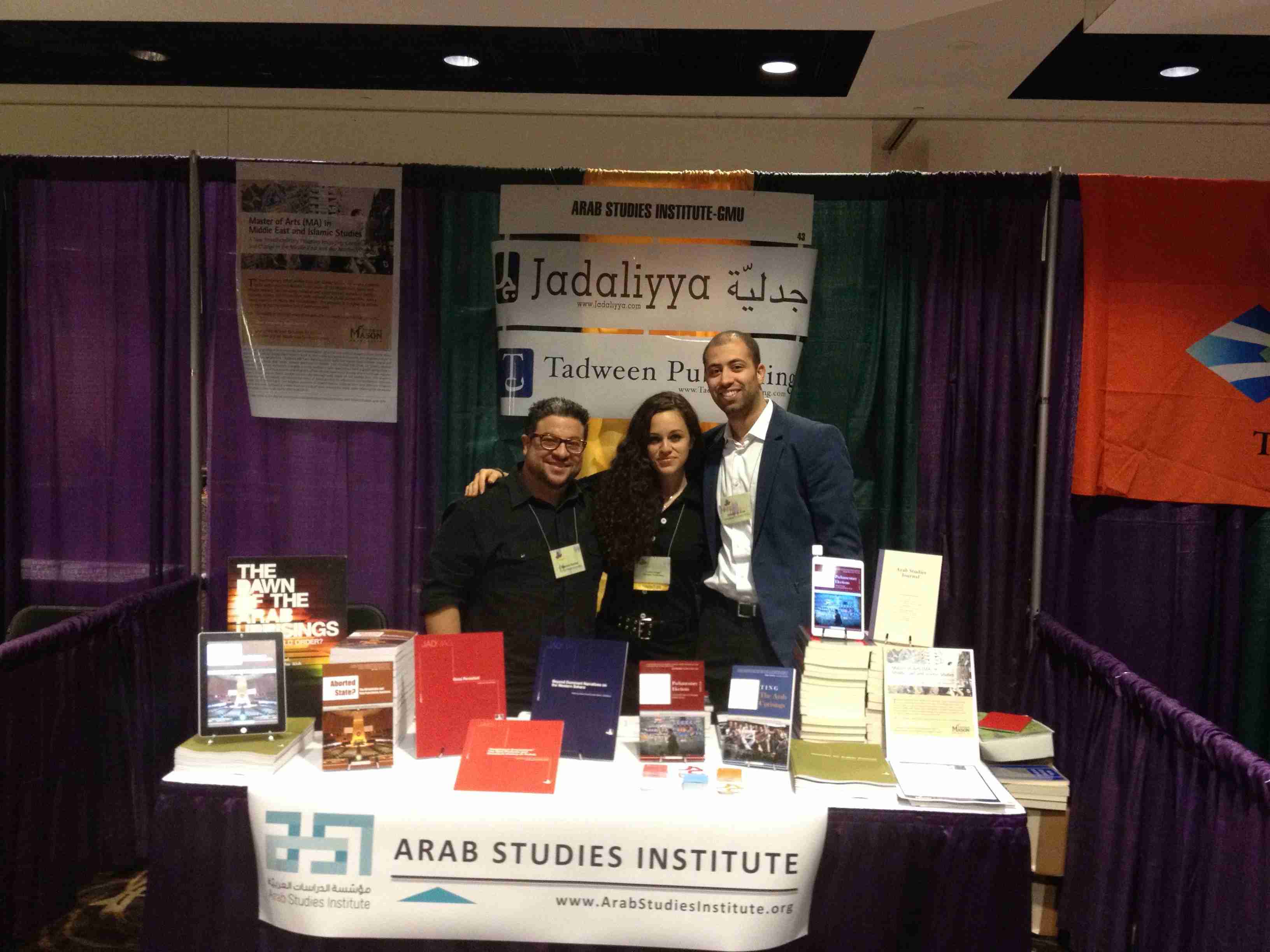
[Arab Studies Institute table at the 2013 Annual Meeting of the Middle East Studies Assocaition. Left to right:
Jadaliyya Co-Editor Bassam Haddad, Tadween Publishing English Blog Editor Kaylan Geiger,
and Critical Currents in Islam Page Co-Editor Abdullah Al-Arian.]
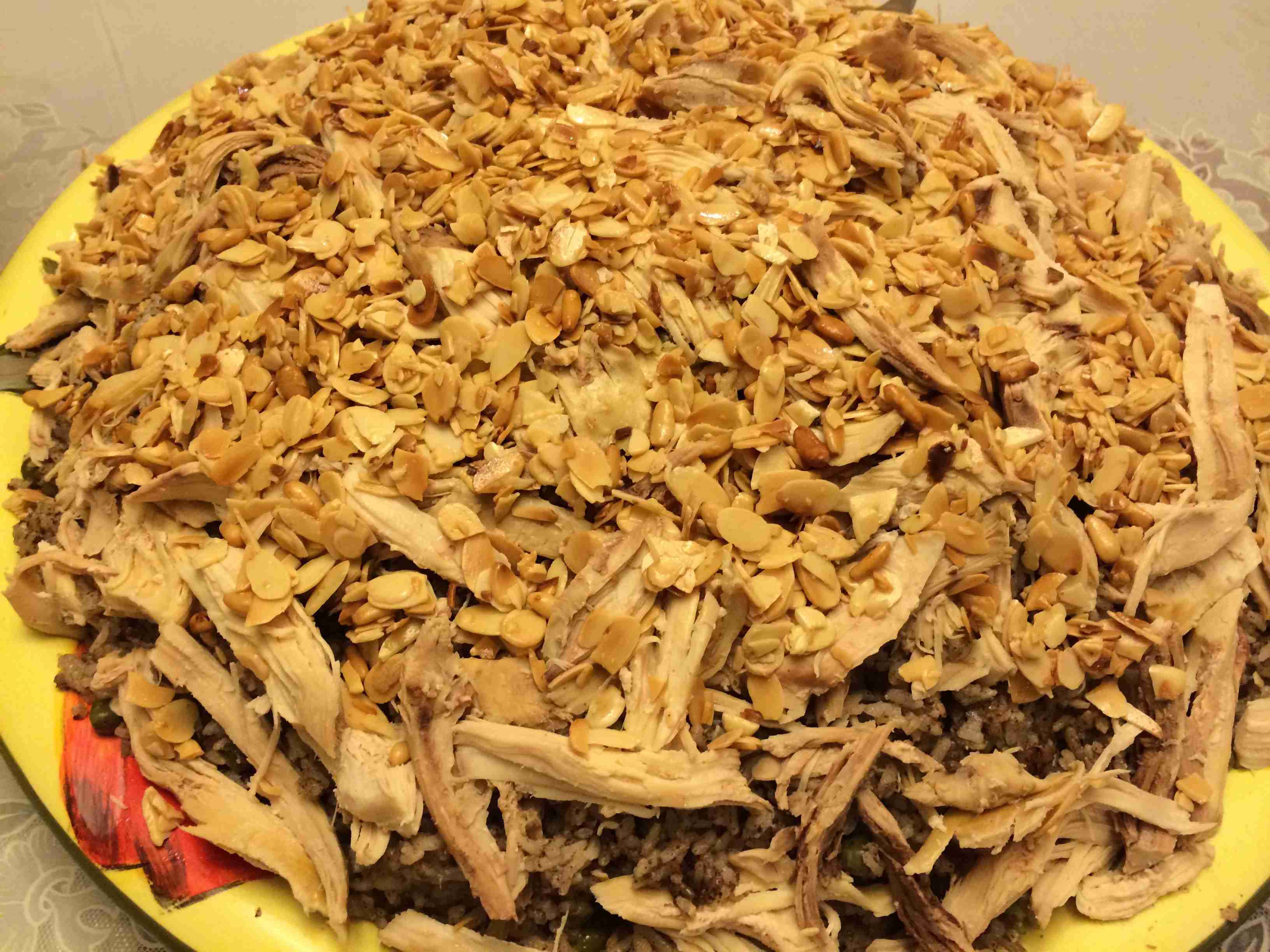
[Asmahan Haddad`s famous riz `a djaj dish. This is the secret to any and all Jad success.]
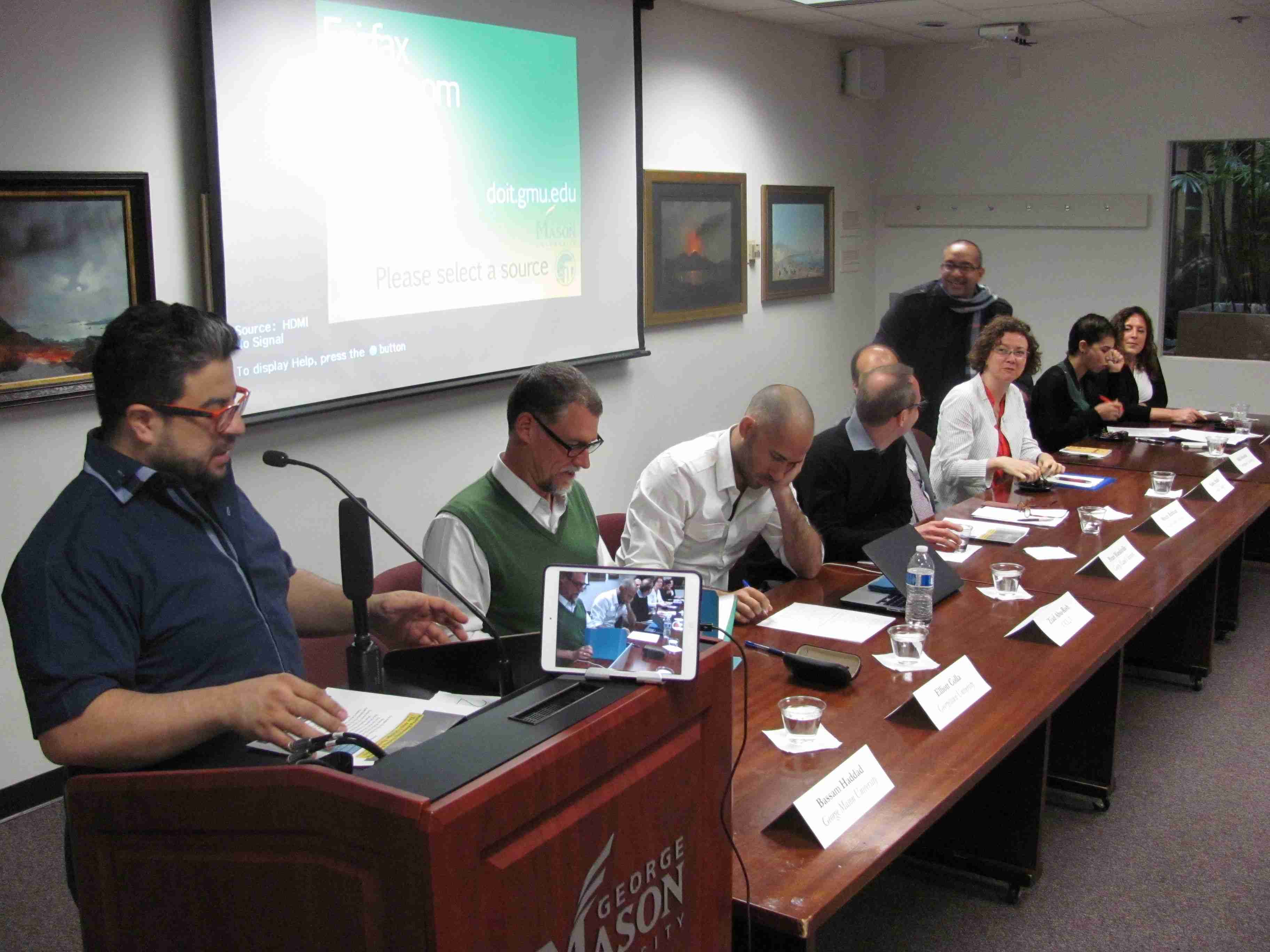
[Take stock of knowledge production on the Middle East at a George Mason University event: "Studying, Researching,
Teaching, Representing: The Arab Uprisings Three Years On" in April 2014. From left to right: Bassam Haddad,
Eliott Colla, Ziad Abu-Rish, Peter Mandaville, Mouin Rabbani, Nadya Sbaiti, Adel Eskandar, Noura Erakat, and Lisa Hajjar.]
